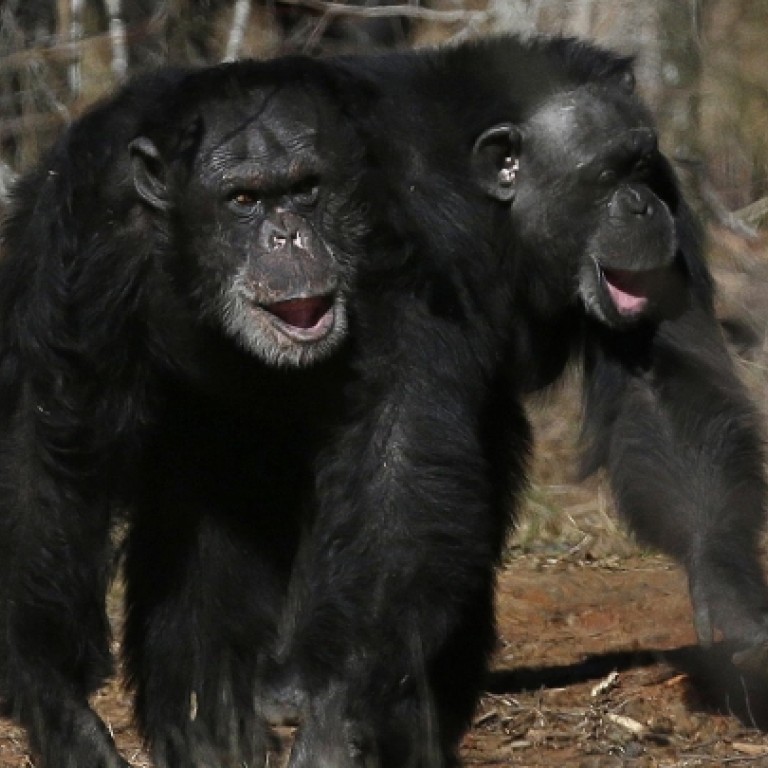
US NIH labs to retire most research chimps in next few years
Advances in technology reduces the need for testing drugs on primates, says US institute
The US National Institutes of Health said it would drastically reduce the number of chimpanzees it uses in biomedical research and retire most of them to sanctuaries, a decision applauded by animal rights groups.
"Chimpanzees are very special animals," said NIH Director Dr Francis Collins, announcing the move. "We believe they deserve special consideration."
The decision on Wednesday followed a recommendation by the US Department of Health and Human Services in January. About 310 chimps will be retired over the next few years and go to sanctuaries, with only 50 being kept for future research.
Animal rights groups applauded the move.
"This is an historic moment and major turning point for chimpanzees in laboratories - some who have been languishing in concrete housing for over 50 years," said Wayne Pacelle, CEO of the Humane Society of the United States.
"Peta is popping champagne corks at their Norfolk, Virginia, headquarters today," People for the Ethical Treatment of Animals said.
The NIH said those chimpanzees kept for research would not be bred and would be selected according to research projects that meet the funding criteria of the Institute of Medicine.
"Americans have benefited greatly from the chimpanzees' service to biomedical research, but new scientific methods and technologies have rendered their use in research largely unnecessary," Collins said.
"The likeness of chimpanzees to humans has made them uniquely valuable for certain types of research, but also demands greater justification for their use."
Some of those justifications were suggested by the Institute of Medicine in 2011. It identified areas in which the use of chimpanzees was critical and could continue, such as the development hepatitis C vaccines.
"No other suitable animal models exist" to test vaccines for hepatitis C, it said.
The number of chimps kept for research would be reviewed every five years to determine whether that is sufficient, NIH spokesperson Renate Myles said.
The Texas Biomedical Research Institute, an independent group, said it was disappointed at the decision to cut the research chimps to 50.
"This arbitrarily chosen number is not sufficient to enable the rapid development of better preventions and cures for hepatitis B and C, which kill a million people every year," it said.
The sanctuary system, started in 2002, is already close to its US$30 million funding limit, Collins said, and more funding would be needed to support the newly retired chimps.

